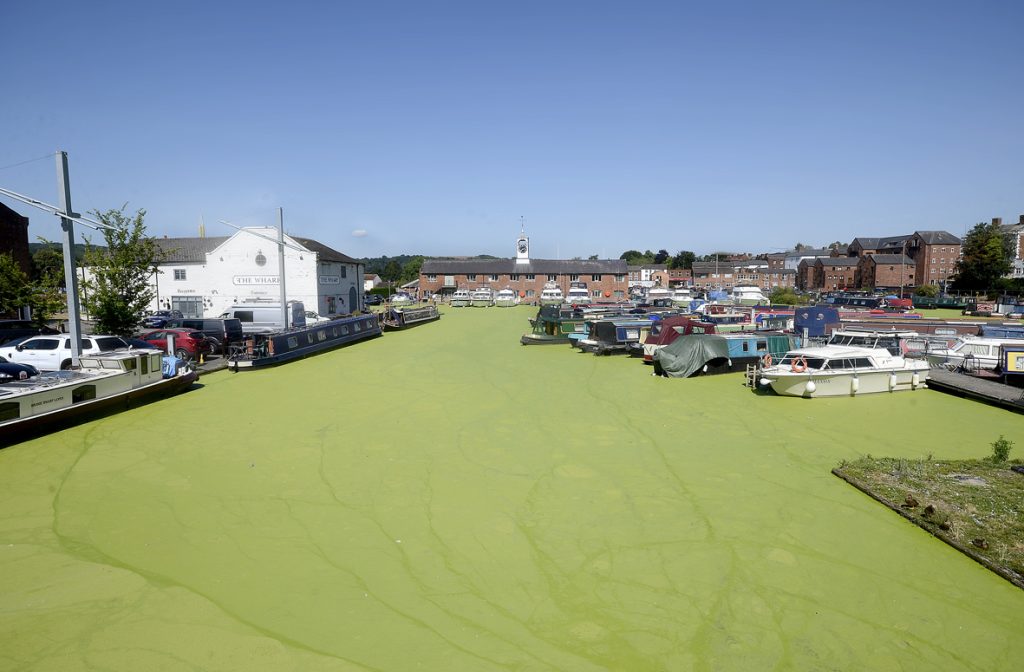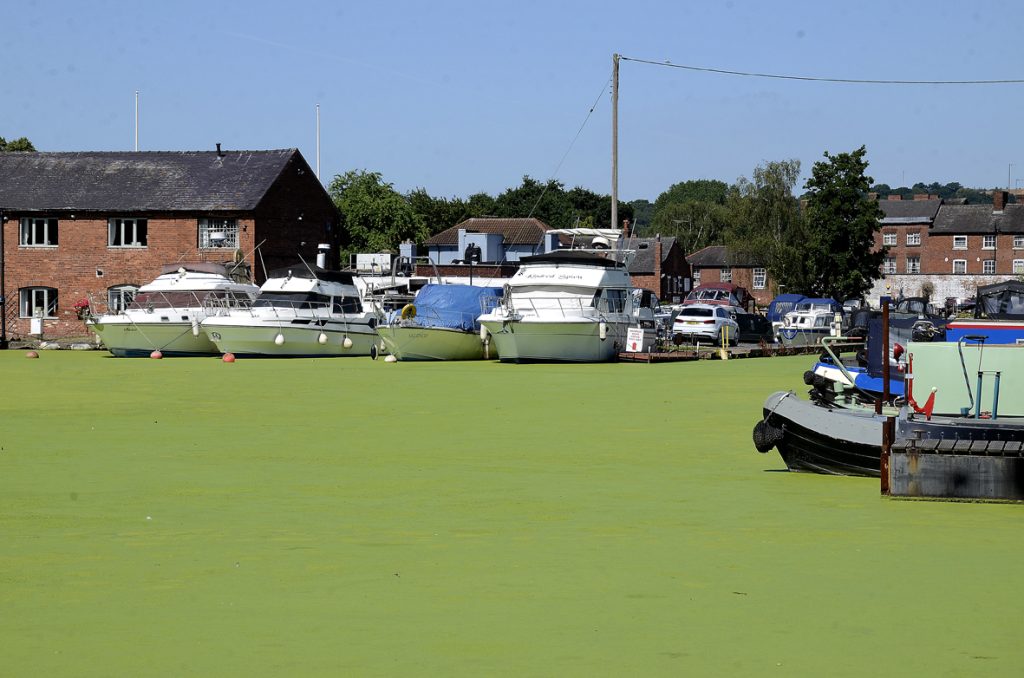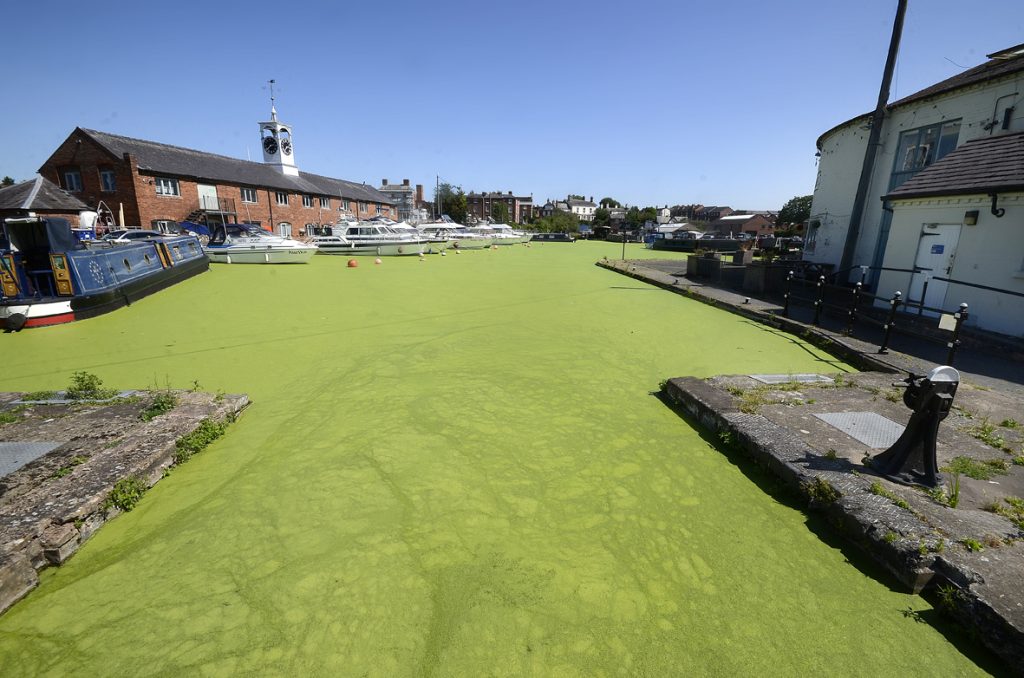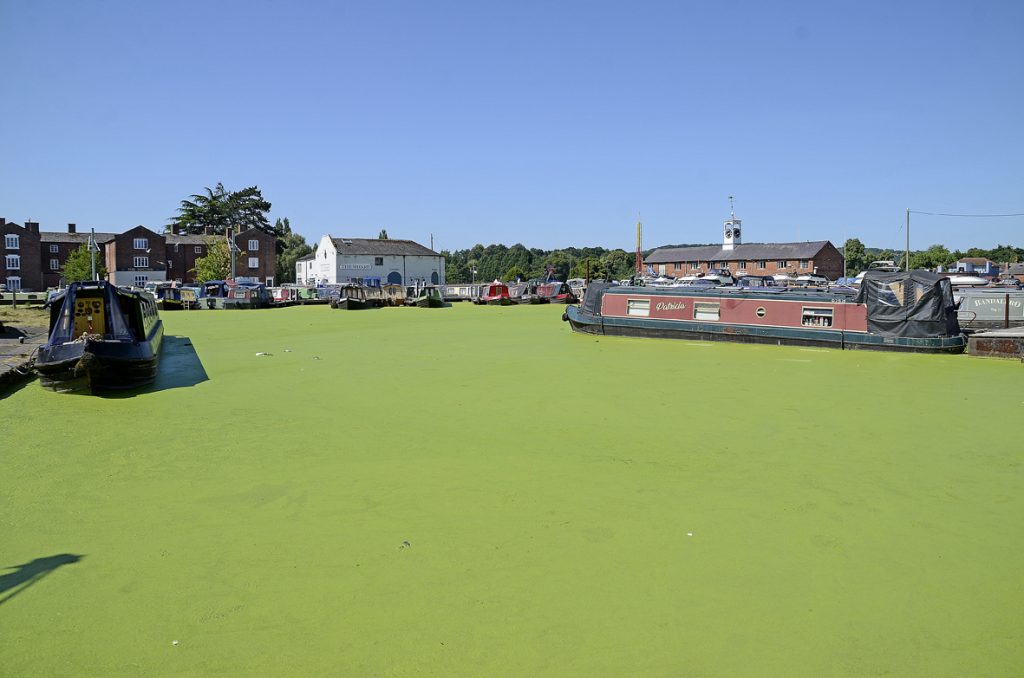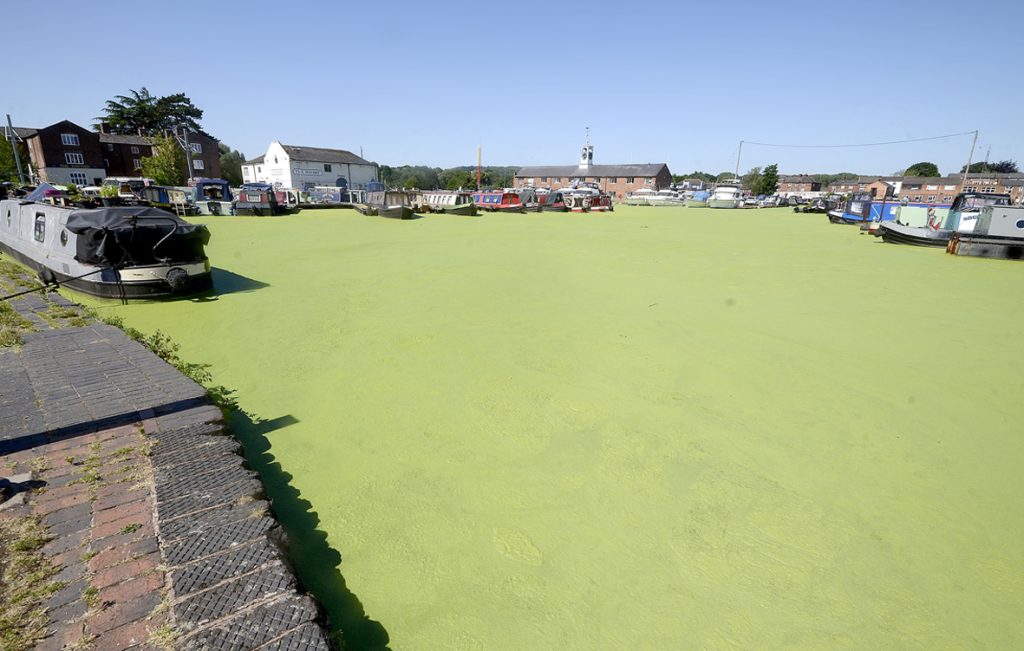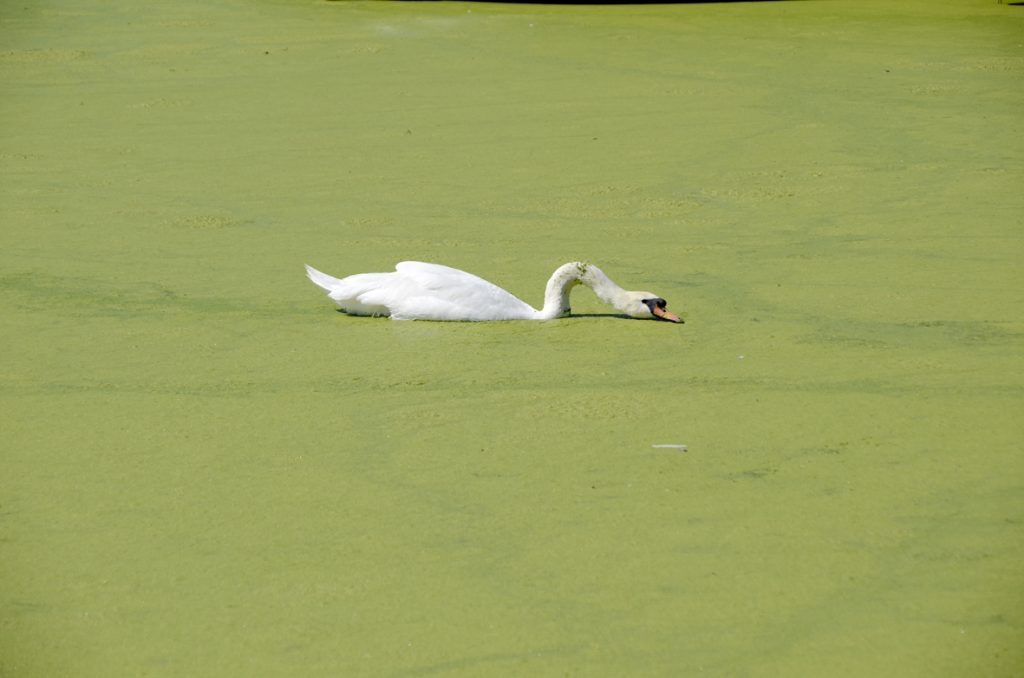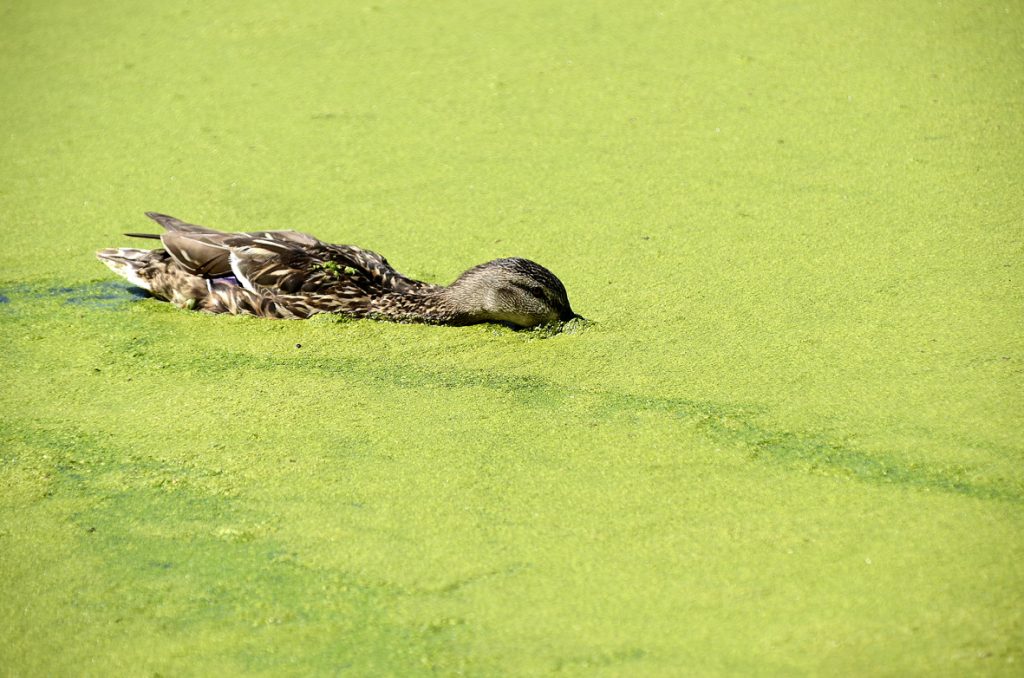THESE stunning images taken by our photographer show the duckweed which has amassed in Stourport basin.
The aquatic plant almost gives the impression that the waterway has been carpeted or turfed.
According to the Worcestershire Wildlife Trust (WWT), duckweed species can be difficult to tell apart and it has not had confirmation of the species growing in Stourport Basin.
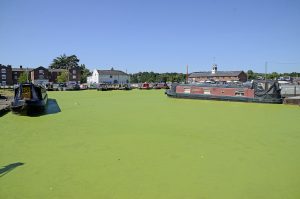
Picture by Marcus Mingins.
However, common duckweed is a natural and common part of freshwater ecosystems that have slow flowing-water, such as ponds or canals.
The WWT said: “Individual duckweeds are very small, often only a few millimetres in diameter, and have single roots that sit directly in the water, allowing them to absorb water and nutrients.
“Each plant can produce two daughter plants, essentially clones, every two to three days when the conditions are right.
“Due to the sunny, warm weather and their ability to absorb nutrients from water, the conditions are likely to have been perfect for duckweed to have carpeted waterbodies.”
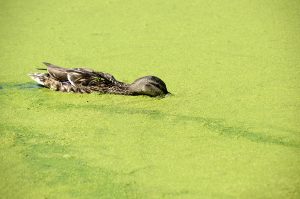
Picture by Marcus Mingins 2925001MMR2
According to the trust, common duckweed is native and wildlife, including ducks, geese and swans, will eat it and it can provide shelter for amphibians.
Duckweed provides competition for algae, which thrive in sunny, warm conditions but, if duckweed completely covers a waterbody, it can cause issues by blocking out sunlight and it can also lead to deoxygenated water which can cause problems for fish and other aquatic wildlife.

Picture by Marcus Mingins 2925001MMR2
The WWT said: “The Canal and River Trust will have their own vegetation management plans but if people find that they have excessive duckweed in their garden ponds there are ways to manage it. you can scoop it out with a net, stick, sieve or rake and leave it beside the water to allow anything living in it to escape, before composting it or responsibly disposing of it.”
It is recommended at least 50 per cent of the duckweed in water is left so any wildlife relying on it as a food source or for cover still has some.
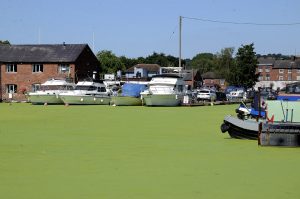
Picture by Marcus Mingins 2925001MMR5
And, when working with water, it is strongly advised to wear gloves and wash hands afterwards.
“As duckweed is so widespread it may be hard to stop it arriving naturally on wildlife, especially as birds can carry it on their feathers and feet.
“To reduce the chances of duckweed entering ponds through human actions, we’d encourage gardeners to quarantine new pond plants in a separate bucket for at least a week and always adhere to the ‘check, dry, clean’ principles for before using equipment in different locations.”


